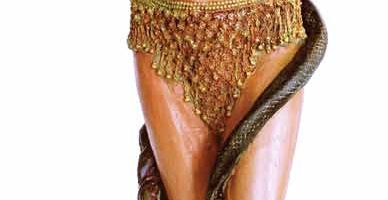Poetry
the coffee drifts down these long bronx halls into my young waking nose
Wake to coffee my mother
says I am too young to drink.
O, the future, so far, so aromatic,
so dark and hot, like the envied
coffee she takes to her lips.
What more do I envy about her,
my mother whose scent is Paris
while she struggles in New York.
Sometimes I smell her sweat,
never heavy or harsh, but distant
and dusky like rivers in an old
country she’ll never see again.
Inside, I promise to visit those rivers,
but do not tell, for fear of her
militia-rage, unseen as land mines
set to blow at any tremor.
I remember to tread lightly
around her long wide nose filled
with smells, gunpowder dust, she
can’t extract, subtract, detract.
I lie in the shadow of war and death
when she bends over my bed,
kisses me light between the eyes
with lips that taste beloved brows
she kissed and cursed as they lay dead.
Falling off to sleep, in my nostrils
still, the scent of Paris, sweat
of New York, dreams of morning
coffee, of futures, rich, dark and hot.
Equipment*
What in her life equipped her
to dig a bullet from her leg
to lie still under many bodies
until decay and stone seeped
into blood and breath?
What in her life equipped her
for smuggling the few guns
a farmer may be bought for,
hoping S.S. or Home Guard hadn’t gotten to him first?
What in her life equipped her for
executing traitors, for burning down
squealers and Jew murderers?
What in her life equipped her
to see a pregnant sister butchered
ghetto burning, brothers shot
running, father gone to forgotten
grave in a hole somewhere in
the surrounding woods?
What in her life equipped her
to walk alone through this life
always dancing for the dozen
seeing traces of eyes and hands
in children she dared to deliver from the fires and the pits?
*a term used by Eta Chait Wrobel, my
mother, to describe (sympathetically)
what one was or was not capable of
her poem
She read me her poem, dated July 1943.
Two months after the liquidation of her ghetto.
The words were clear, direct and undramatic.
She used no metaphors.
Nothing was like anything else.
The words all in Yiddish
the language a message.
Dead languages like people
kept alive if we speak them.
Her voice sweet, fragile, even scared.
Not the iron woman so many see.
A folded yellowed page.
She can’t recall exactly where she wrote it.
The woods bore no address.
So many years unshown.
Today to be disclosed, exposed, made known.
Nothing I haven’t heard in content and in fact.
But dated… July, 1943.
So near, so there, so unembellished clear.
This is she. This is me.
She reads. I hear.
It digs down deep
a dentist’s slim needle into a root canal.
Novacaine spreads from brain to groin,
feeling but a shadow of the painful procedure.
Novacaine now is wearing thin.
Dull ache reveals the sorrow concealed.
Thank you for this gift, for the simple-tongued sharing.
Tonight I pick up my pen for the
first time in many months.
Bless you, mother.
worship
I worshipped the ground she walked on.
She worshipped life.
Not only mourning for twelve
but dancing for them
and laughing for them
even joking for them.
She lived always times twelve.
There was human greatness,
at times heroic pettiness.
She was our own King Lear
but with glimpses so sweet
delicate and breakable
of porcelain, not steel.
It wasn’t easy to be hers.
To grow up in a house-of-the-murdered.
Mothers and fathers and sisters and brothers
multiplied many times in all their friends and kin.
Glass and iron, glass and iron.
So much glass and iron.
A hard yin-yang
seldom light-hearted
always profound.
In the last decade and more
we found much peace together.
She never ceased to be my hero
and finally got to be my mother.
I am mother now down three generations.
It is for me to pick up her staff, to walk
with her wounded feet and strong legs.
She is a mountain.
I am still climbing her.
Anna Bat-Chai Wrobel is an American historian, poet, Holocaust educator, labor union activist, refugee advocate, and curator of a monthly poetry series in Portland, Maine. Her first poetry collection, Marengo Street, was published in 2012 .


